We’re following a conversation I had with Justin Wolfenberg, one of my Abrahamic heroes here in Cincinnati, who has made some really provocative, bold choices in the way that he’s building and leading his family (here’s part 1). There are many things that Justin has to teach us, but recently the bee in his bonnet has been about land, something that’s always intrigued me (is it the Texan in me? Nah, it’s the Yeshua), but I’ve never really understood the subject very deeply. Let’s jump back in:
STEVE: OK Justin you were telling me about collecting land, and that it’s changed the way you disciple men, and your career to boot! So if we can get a little bit granular Justin, tell us what your appreciation for God’s heart regarding land has actually done to your bottom line. What’s it done to your earnings and your family’s savings? How has land changed your financial picture?
JUSTIN: Well I took a pretty big risk going in; I cashed out all my retirement accounts to put them into land. And so it’s been a major shift. Currently we live on a tighter budget but we have a vision for a day when these assets will be a platform for my son and future children to build upon in whatever way God calls them to. This will be something that will be there for the long haul, as an asset, a source of income, and a possible vocation. Prior to this shift, my only option with my children was to send them to college and hope for the best; I had no other options. Now they will have a choice: they could go to college, or they could stay and work the business. They could have this land fueling other businesses, other ventures or whatever.
STEVE: So it looks really good in the future, but tell us more about what things look like right now. For instance, what kind of mortgages are these houses on?
JUSTIN: We’ve got six properties; three of them are paid off in cash already—we just bought them outright with the cashed out retirement accounts. The other three have ten years or less on their mortgage. So in 10 years we should be debt free on all of our properties.
STEVE: Wow! So if we take into account the value of their properties right now, are you already in the black for what you cashed out of your retirement?
JUSTIN: Absolutely, yes. I was very blessed to buy during the downturn of the market; that was just the timing of when God led us, surprise, surprise. And value of the properties aside, I’ve reclaimed most of that money just in collecting the rent, which pays for our family’s eating and fuel and whatever else.
STEVE: So these rental properties are your income.
JUSTIN: Correct.
STEVE: But you have another business on the side, is that right?
JUSTIN: I sure do. I work with other fathers teaching them how to work on their own homes, and learn the same rehab and homebuilding skills I had to learn when we bought our first couple of houses. So families will hire me, and then they also get to be on the crew. So it’s yet another opportunity where I’m teaching, training–helping a man feel like a man in his own home. I not only want to fix their house, I want to equip the father, specifically, to be able to work with his kids. And of course, while I’m doing that, I’m also securing income, which we’re called to do.
STEVE: This is a genius idea! You’re exactly what I’ve been looking for to do my basement bathroom, because I want to learn while it’s getting done!
JUSTIN: Well then duh, you should call me. This is my thing! 513.484.4698. Or email me at jwolfenberg@gmail.com. You have email, right?
STEVE:
JUSTIN: Well I’d be willing to work with you, Steve… but I’d love to work with anybody else.
STEVE: Nice. Well, let’s get back to the finances, MAY WE?? Ahem. Did you specifically want short-term mortgages for the other three that have yet to be paid off?
JUSTIN: Yes we want to work hard, fast, and kill that debt ASAP. They were all 15-year mortgages and I think the longest one has ten years left. All of the interest rates are around 3 percent, so that’s great. On two of the three loans we’re paying extra against the principal, so they should be paid off a little bit early.
STEVE: So now we’re not talking about an income where you hope to get a raise, and then you can increase your standard of living by 3%, then edge up slowly so that 5 years from now you can buy a new car. We’re talking about long term. I don’t want to use the phrase “passive income” because, to me, that insinuates luxuriating, making money and not working. I know you well enough to know that you’re not going to stop working. But tell us something about the way that you see long term income and what that has to do with family building.
JUSTIN: Yeah, it just takes money to do many things: think about the simple family value of taking care of aging parents. I would love, if given the opportunity, to honor my parents by taking care of them in our home versus a nursing home. That value takes money to accomplish—a lot of money, over and above regular income to live on. So if we have enough kids and enough assets, we can do something like that. That ongoing financial pipeline will also allow my children to stay close, because there’s a revenue stream here. It would allow us to start other businesses. Or, heck, there are lots of men that need to be discipled but they’re stuck in their lives. And so if I have businesses where I can hire men to come along and work alongside me, that could be a real game changer for that person. There’s many ways to think about how money, specifically from land, can fuel a family vision.
STEVE: You were saying something earlier about looking forward to the future and the options that land creates. You were saying there’s a greater security in land than in the market…?
JUSTIN: Yeah there’s a couple of things there. All of our properties except one are within walking distance of my front door. Currently, one of them is used for discipleship, but any of them could be used for my children or grandchildren to live in one day. There’s a proverb that says a grandfather gives a grandchild an inheritance, so it could be in that house. Or it could just be used for revenue and in terms of the security thing. Another proverb, chapter 27, says you do not know the future. So times could be great; times could be not great. I don’t know what life will be like for my great grandchildren, but it’s my responsibility to make sure they are provided for and taken care of. So if we have land and the economy does go down, then we would have the ability to grow food on that land, and I would be able to preserve our family to serve the King in those years to come! So that’s a forward way of thinking, not just about my generation, but I’m working for my great great grandchildren, and setting up a platform for my family line. In good or bad times, they will be able to preserve the family line and serve the LORD.
STEVE: So you feel that securing land is an even better bet than stockpiling money for future generations.
JUSTIN: Potentially, yes. Obviously, having money as money can be super valuable in itself but land gives you a permanent platform to do a lot of different things. Like I’d mentioned, you could live there, or growing food, or collect water… Some of our properties have cisterns on them. There’s gardens… there’s raising animals… there’s a lot that you can do with land! And it’s a wonderful way to raise your children, when they’re in touch with where their food comes from, and the work ethic land requires, and the value of some hands-on living. I’m seeing that it’s really valuable… and it’s really fun!
STEVE: Do you have any ambition to buy rural land, or is it just the case that when you think land, are you always thinking homes?
JUSTIN: Well that’s a great question and I don’t have an answer for that. I like where I am now, focused on one city. I can’t care about multiple cities, not yet anyway, but I can care about one city. Our land is really focusing my attention on that one small city. Now I do think there is incredible value in having some rural land for different reasons. One of those being the idea of children running through open woods that their family owns. That’s an incredibly healthy thing. Then there’s the idea that, if things go bad in a society or an economy, you have a wide tract to cultivate things on. I mean, it could literally preserve your family in times of trouble. So yeah, that might be something in the future for us.
STEVE: Okay we’ve talked a lot about applications and a lot of specific things that you’re doing. Let’s go back to the beginning, when you started talking about God revealing his heart to Abraham, or maybe Abraham already knew these things instinctually about the value of land. What was God revealing back then? Because in America today, we don’t we don’t really value land. We’d rather have a big bank account than some boring acre of land somewhere. Can you teach us on that from the Scriptures?
JUSTIN: Yeah I made reference a little bit earlier about just reading the book of Genesis and how God continually reminds the patriarchs, starting with Abraham and all the way through Jacob and Joseph, about the value. Of. Land. He is thinking about a land for his children. From the very outset of the story! As we mentioned earlier, God’s theme was around children and land, and his heart for that has not changed one iota. Hence, you’ll see such enduring controversy around Jerusalem and Israel as a whole… Those places, that land, are hotly contested, because it’s really much more of a valuable commodity than we understand. There’s a gravity to it.
We’re sometimes confused, like, why do people care so much about a piece of land? What is really in God’s heart? Is a patch of dirt really so valuable to God? Well, it is! Even if you go back even farther, in Genesis 1, He creates land and children, and that was kind of the platform for Him and His relationship with the first family. That’s how He chose to interact with His first family.
Land interests are a really, really special thing, and I don’t think I’m ever going to get away from it, now. You hear stories throughout history of people willing to die for their land, and to modern, American ears, like… that’s so foolish! Dying for land?! But there is something worth dying for over land! It is that valuable in the story of God, and it’s sadly one of the things we just kind of skip over when we’re reading the Bible. But it’s there all the time. And as I pursue Him, and grow into more of the family builder God wants me to be… I guess I’m going to end up being like Him! So guess what I’m into more and more…? Children! And land!
As I said, Justin is a fascinating, all-out follower of Jesus and an Abrahamic, multi-generational family builder who’s learning to steward assets in lots of really inspiring ways. We’ll be hearing more from Justin in the future, for sure. Until then, how do you see the asset of land? Have you ever thought of it as a foundation for building a family? Talk to us in the comments!










This is all just brilliant. Way to go Justin (and great interview Steven!) The pics of your kids helping are so moving. I love the way you’ve forged your own new trail. Excellent apostolic leadership.
I’d love to hear from Shelley (I realize this is “Abraham’s Wallet” but Sarah is at your side and there are unique challenges for her as your partner. How you’ve gone down this journey together, wisdom she could share, etc. Maybe a part 3 someday 😉
Yeah! Great comment! We’ll definitely be hearing from Justin in the future.. and yeah we’ll pull Shelley in there too!